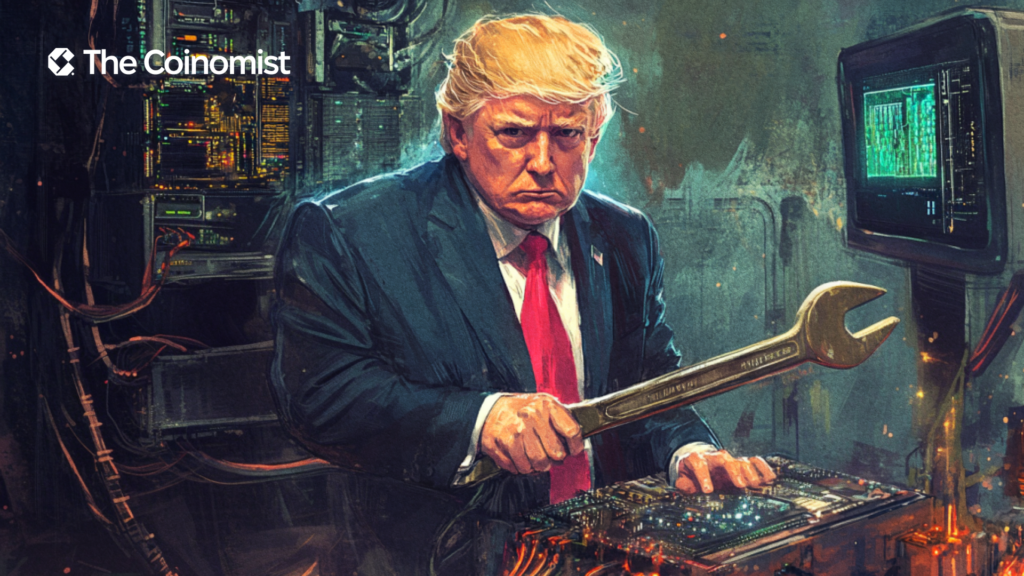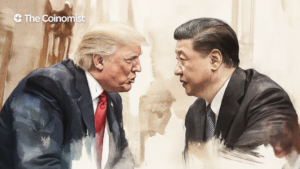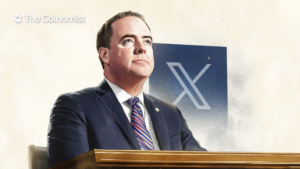Trump’s Tariffs Threaten Blockchain Infrastructure

Industry experts warn that U.S. tariff policy could disrupt mining equipment supply, increase regulatory fragmentation, and limit access to cryptocurrencies.
On this page
Several crypto industry leaders, speaking to Cointelegraph, raised concerns about the potential damage Trump’s tariff policy could cause to blockchain infrastructure.
The biggest concerns involve potential issues with hardware supply, stricter regulations, and even censorship. According to industry experts, there’s a high risk that blockchain validators and node operators could face serious disruptions.
Additionally, Nicholas Roberts-Huntley, CEO of Concrete & Glow Finance, noted that aggressive tariffs present a major threat to all participants in the network. He also added that infrastructure is particularly at risk, as it’s the most exposed to trade wars and global instability.
Related: Ethereum vs Bitcoin: Key Differences Explained
One major concern is how potential trade restrictions could impact the Bitcoin blockchain, since its operation depends on specialized hardware.
David Siemer, CEO of Wave Digital Assets, noted that tariffs could disrupt the supply chains for ASIC chips, essential components for mining and keeping the network stable. This risk extends even to smaller mining devices like Bitaxe, copies of which now flood online marketplaces.

For example, the Chinese ASIC manufacturer Bitmain holds a key position in the global Bitcoin ecosystem. If production or delivery of its mining equipment is disrupted, it could cause instability across the network. Siemer believes that any interference with this unique infrastructure will directly affect everyday BTC users.
Additional Risks for the Crypto Industry
Moreover, some governments may also impose restrictions on certain crypto exchanges and fiat on-ramps! This could increase pressure toward centralization, directly opposing the foundational principles of digital assets. These actions may also significantly impact crypto prices, particularly during a period of heightened volatility caused by U.S. tariffs.
If global trade breaks down and capital controls tighten, it may become harder for citizens in restrictive countries to acquire bitcoin. Governments could crack down on exchanges and on-ramps, making accumulation and usage more difficult,
said Joe Kelly, CEO of Unchained.
On the other hand, Bitcoin has already shown greater resilience than traditional markets, reinforcing its viability as a long-term investment.
Neil Chopra from Fireblocks believes this difficult period could mark a turning point, highlighting the real value and potential of cryptocurrencies on the global stage.
Potential changes in the economic policies of major nations could create serious challenges for the crypto industry. At the same time, they could highlight the real value of digital assets and encourage the growth of independent regional ecosystems.
This, in turn, could pave the way for greater technological diversification and the adoption of new innovative solutions.
Related: How Bitcoin Travel is Transforming the World of Crypto Tourism
The content on The Coinomist is for informational purposes only and should not be interpreted as financial advice. While we strive to provide accurate and up-to-date information, we do not guarantee the accuracy, completeness, or reliability of any content. Neither we accept liability for any errors or omissions in the information provided or for any financial losses incurred as a result of relying on this information. Actions based on this content are at your own risk. Always do your own research and consult a professional. See our Terms, Privacy Policy, and Disclaimers for more details.

























